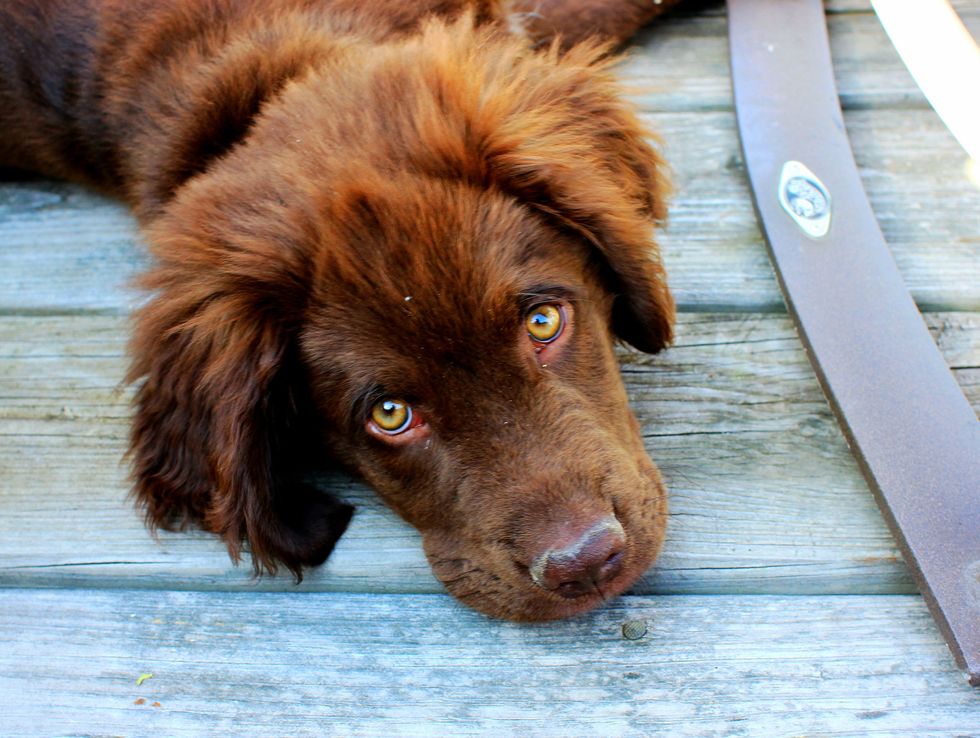Yes, she was an animal who couldn't talk and wasn't a blood relation to any of us, but pets can become as significant as human family members, after enough time has passed. There's something so special about an animal's love––it's unconditional and uncomplicated. Gracie, our fourteen-year-old schnauzer and poodle mix wasn't at all aggressive or unpleasant. She played rough at times and believed her growl was the most intimidating sound around, but when it came down to it, she really just wanted to be loved and accepted. All she wanted was to be with her humans.
My mom was her favorite. She was the only person capable of picking Gracie up without getting bitten. Ever since Gracie got sick as a puppy and nearly died, she'd sleep on my parents' bed next to my mom, remaining loyal to the spot she rested in during some of the roughest times. I was always jealous of their bond. Whenever I tried to get Gracie to spend the night in my room, she would throw a mini fit, barking and scratching at the door until she was reunited with my mom.
There were a few other people who were ranked pretty highly on Gracie's favorites list, like my aunt, my friend's mom, and the dog sitter. These individuals were lucky. Gracie let them pick her up and pet her for hours, while other friends and family members didn't have those privileges. In fact, she was afraid of some of the people who passed through our house,
We couldn't figure out what it was about certain visitors that made her go wild and throw barking tantrums. Bob, a man who has done work on our house throughout the years, was probably Gracie's least favorite person. He was a loud, towering, intimidating presence for her, and we often had to let her out back in the yard or keep her upstairs while he was doing work on the house. She was stubborn and territorial, and would not let anyone mess with her family or her house.
For the most part, she didn't like other dogs. In fact, I only ever saw her get along with two dogs in our neighborhood, over the course of her fourteen years of life. She had a special connection with Wesley, a newfoundland puppy who lived at the end of our street. He weighed about one hundred pounds more than her and could easily crush her with a single tap of his paw, but he was a gentle giant. I think she liked his quiet nature, and the fact that he wasn't constantly yipping and yapping like some of the other dogs she had encountered. After he passed away, she didn't make many other dog friends, only ever spending time at home with us, playing tug-of-war, sleeping, and eating. Her energy loss happened gradually, but even during her last months, she was a bright and positive force in our lives.
Grieving a pet is hard for many reasons, but for me, it's mainly just frustrating how many people think animals don't count. A few of my friends have grieved fairly quicking after losing pets, seeming fine after a few days of initial sadness. My family is the opposite when it comes to the grieving process. We don't bottle things up; we lay it all out on the table once it starts bubbling at the surface. This means crying during movies when we remember that Gracie's spot on the couch is bare, or that she doesn't greet us at the door anymore when we come home from long days at work. It's an ongoing process, and though it certainly isn't linear, I will encourage my family and myself to recognize the memories and associations that linger, without suppressing the importance that she held in our lives.









































